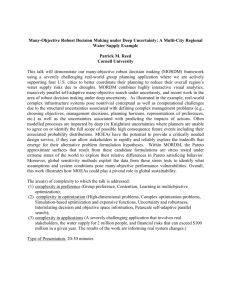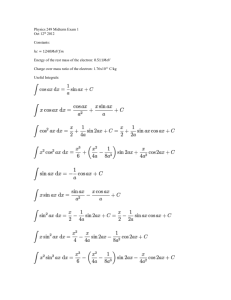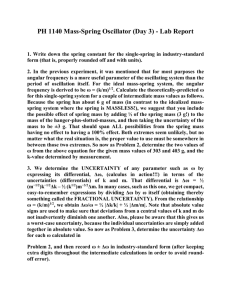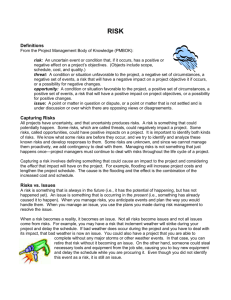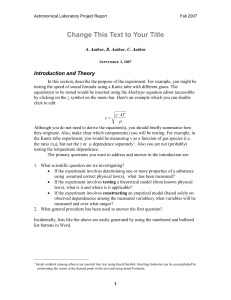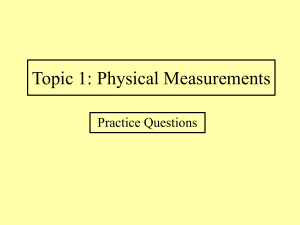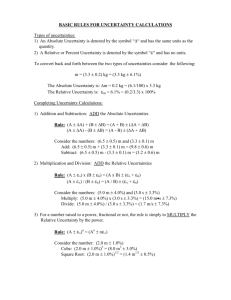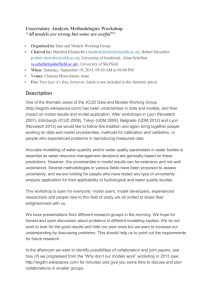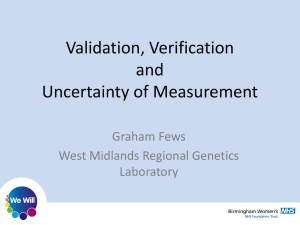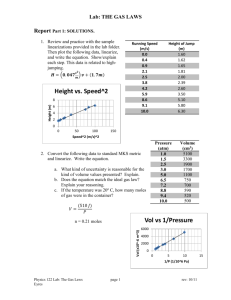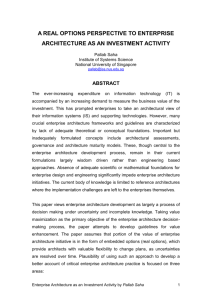From chapter 4 The Search for meaning pp
advertisement
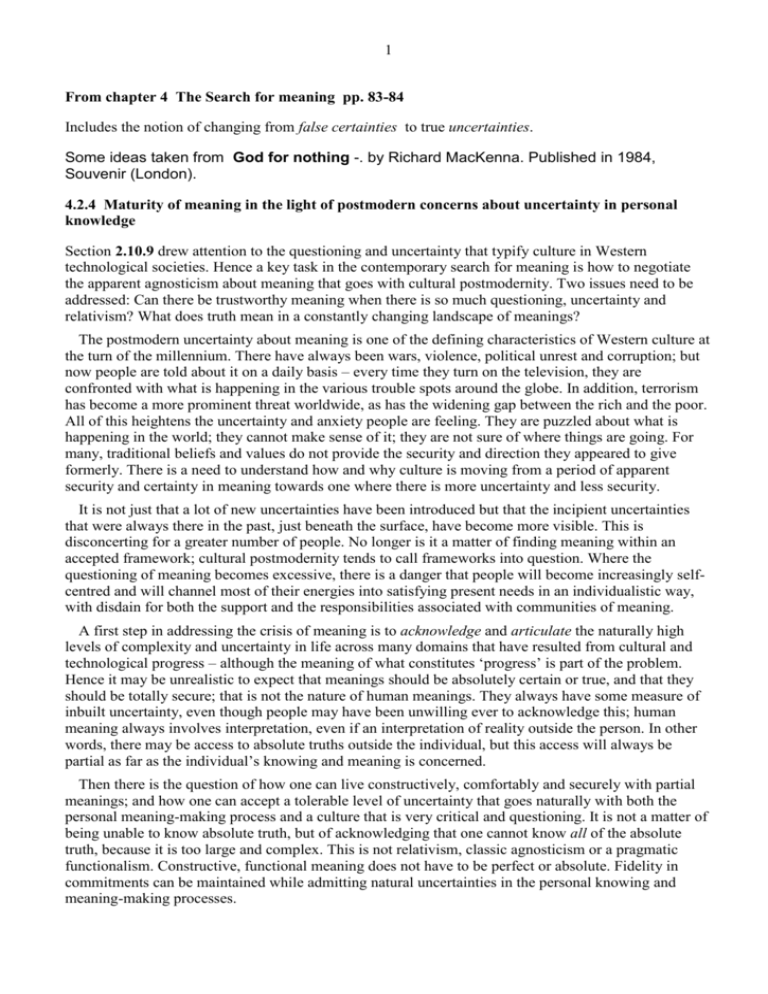
1 From chapter 4 The Search for meaning pp. 83-84 Includes the notion of changing from false certainties to true uncertainties. Some ideas taken from God for nothing -. by Richard MacKenna. Published in 1984, Souvenir (London). 4.2.4 Maturity of meaning in the light of postmodern concerns about uncertainty in personal knowledge Section 2.10.9 drew attention to the questioning and uncertainty that typify culture in Western technological societies. Hence a key task in the contemporary search for meaning is how to negotiate the apparent agnosticism about meaning that goes with cultural postmodernity. Two issues need to be addressed: Can there be trustworthy meaning when there is so much questioning, uncertainty and relativism? What does truth mean in a constantly changing landscape of meanings? The postmodern uncertainty about meaning is one of the defining characteristics of Western culture at the turn of the millennium. There have always been wars, violence, political unrest and corruption; but now people are told about it on a daily basis – every time they turn on the television, they are confronted with what is happening in the various trouble spots around the globe. In addition, terrorism has become a more prominent threat worldwide, as has the widening gap between the rich and the poor. All of this heightens the uncertainty and anxiety people are feeling. They are puzzled about what is happening in the world; they cannot make sense of it; they are not sure of where things are going. For many, traditional beliefs and values do not provide the security and direction they appeared to give formerly. There is a need to understand how and why culture is moving from a period of apparent security and certainty in meaning towards one where there is more uncertainty and less security. It is not just that a lot of new uncertainties have been introduced but that the incipient uncertainties that were always there in the past, just beneath the surface, have become more visible. This is disconcerting for a greater number of people. No longer is it a matter of finding meaning within an accepted framework; cultural postmodernity tends to call frameworks into question. Where the questioning of meaning becomes excessive, there is a danger that people will become increasingly selfcentred and will channel most of their energies into satisfying present needs in an individualistic way, with disdain for both the support and the responsibilities associated with communities of meaning. A first step in addressing the crisis of meaning is to acknowledge and articulate the naturally high levels of complexity and uncertainty in life across many domains that have resulted from cultural and technological progress – although the meaning of what constitutes ‘progress’ is part of the problem. Hence it may be unrealistic to expect that meanings should be absolutely certain or true, and that they should be totally secure; that is not the nature of human meanings. They always have some measure of inbuilt uncertainty, even though people may have been unwilling ever to acknowledge this; human meaning always involves interpretation, even if an interpretation of reality outside the person. In other words, there may be access to absolute truths outside the individual, but this access will always be partial as far as the individual’s knowing and meaning is concerned. Then there is the question of how one can live constructively, comfortably and securely with partial meanings; and how one can accept a tolerable level of uncertainty that goes naturally with both the personal meaning-making process and a culture that is very critical and questioning. It is not a matter of being unable to know absolute truth, but of acknowledging that one cannot know all of the absolute truth, because it is too large and complex. This is not relativism, classic agnosticism or a pragmatic functionalism. Constructive, functional meaning does not have to be perfect or absolute. Fidelity in commitments can be maintained while admitting natural uncertainties in the personal knowing and meaning-making processes. 2 From this point of view, growth towards maturity in meaning involves replacing false certainties with true uncertainties. It means learning how to cope with a natural level of complexity and live with the valuable partial meanings that individuals can construct in connection with community life; and it includes valuing traditional meanings even if they are reinterpreted anew from generation to generation. This approach to meaning-making applies to those who are religious believers as well as to those who are not. Admittedly, it is the sort of maturity that might be expected of adults. Also, it can be more suited to some personalities than others; some find it difficult to live with too many ‘loose ends’, especially as regards their ultimate meanings. Inevitably, some will reject this view as relativism of a sort because it admits to a level of uncertainty in personal knowledge that they are not prepared to accept. This interpretation has implications for religious people: for example, acknowledging a degree of uncertainty in the physical or historical details related to their religious beliefs and accepting this as a normal part of faith, as well as accepting that religious doctrine is socially constructed and has usually evolved over time. Some, however, would want a stronger place for historicity and unchanging doctrine. The differences in epistemology implied in the above discussion need to be acknowledged; this is significant in the public debate about what might be entailed in an education in meaning. We think there will never be full community consensus about the issues. But it is still possible to work at clarifying what can be attempted in an education in meaning. A capacity to live with some uncertainty in the meaning system has probably always been a part of the makeup of mature people. It is just that in contemporary Westernised societies there is a greater need for such a capacity just for psychic survival and mental health. Those who favour a more absolute and certain meaning system will be in for a harder time, even if they are supported and reassured by a strong group of the like-minded. It is too much to expect that this sort of adult maturity in meaning can be realistically achieved by children and adolescents. Nevertheless, if it is an appropriate ideal, it should have implications for school education. * * * * * * * * * *
